“Disagreement is nothing new in the government”
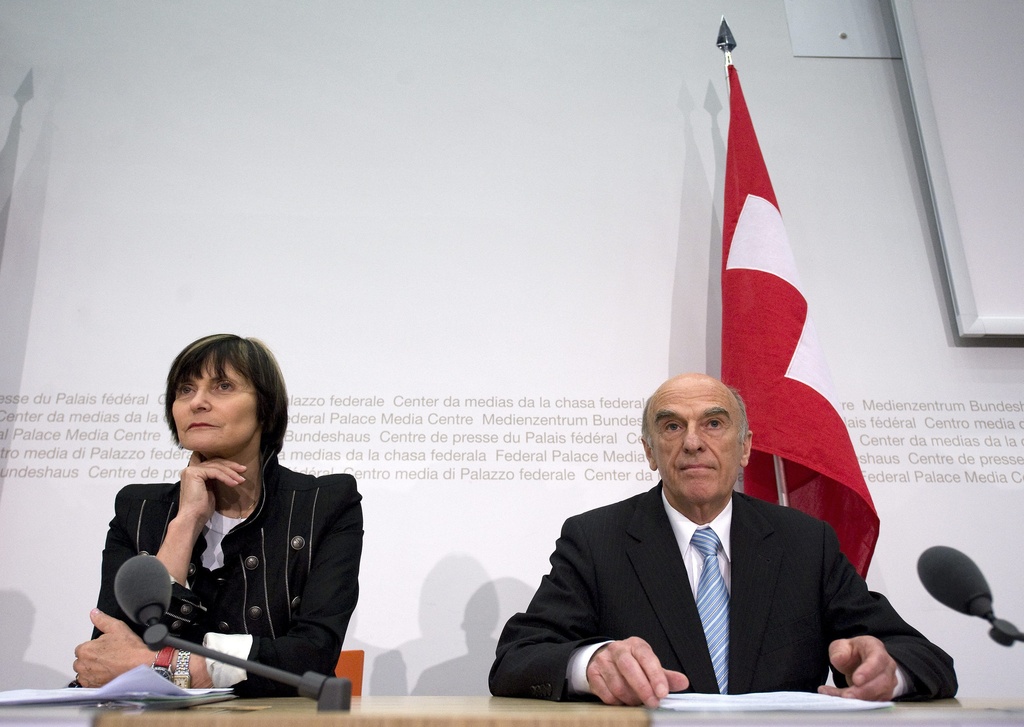
The Swiss government has been wracked in recent weeks by quarrels and leaks over key issues like UBS’s problems with the United States and the Libya crisis.
However, former cabinet spokesman and vice chancellor Oswald Sigg tells swissinfo.ch in a written interview that he does not believe there is a government crisis, although he agrees that not everything is perfect.
“Even if the weather isn’t very seasonal, we can expect a hot summer politically,“ he says.
Hitting the headlines in the past few days has been confusion over a secret plan to send a rescue mission to snatch the two Swiss hostages held in Libya. The existence of the plan was aired in the Swiss media at the weekend, and confirmed by Swiss President Doris Leuthard on Monday.
It is not clear whether last year’s president, Hans-Rudolf Merz, was aware of the plan when he travelled to Tripoli last year to try to win the hostages’ release.
The rumours about spats in cabinet over Libya follow on from a highly critical parliamentary report on the government’s handling of the global financial crisis and its treatment of the embattled Swiss bank UBS. In particular, the report said Merz had not kept his colleagues informed.
swissinfo.ch: Is Switzerland now facing a government crisis?
Oswald Sigg: No. Disagreement is nothing unusual in the government. The cabinet will get itself back on an even keel.
swissinfo.ch: Is this the end of the collegiality principle?
O.S.: No. In principle, government decisions continue to be taken collegially.
swissinfo.ch: Does the government need to be reformed? If so, how?
O.S.: No, it doesn’t. There will be general elections in 2011, and parliament will then be able to replace all the members of the cabinet if it wants to.
swissinfo.ch: People abroad often find it difficult to get a handle on Switzerland, because the office of president rotates annually. Do we need a presidential system?
O.S.: It simply isn’t true that people abroad are not sufficiently aware of Switzerland merely because the president only holds office for one year. For example, Mrs Leuthard is well known to foreign governments as Switzerland’s long-time economics minister.
swissinfo.ch: On the subject of rivalries between members of the cabinet, and their urge to push themselves: this is nothing new, is it, even if it perhaps used to be less widely reported?
O.S.: Indeed, it has always been there. But the media’s sometimes excessive zeal for attention-grabbing headlines and one-sided reports is something fairly new.
swissinfo.ch: Are there fewer team players and more big egos in the government? Isn’t in the case that ministers in general are not, or do not want to be, simply “decent” people, who shy away from conflict, but independent personalities with a strong public profile
O.S.: Perhaps. But this only goes to show how much responsibility parliament has where this is concerned. And in two ways: parliament should only elect to the government candidates who can work well together. And parliament should not act as if it wanted to show the government who is the master.
swissinfo.ch: A comparison with other countries shows that you get conflict, rivalry and leaks in practically every government. Aren’t our problems rather less serious – “laughable” in fact – in comparison with elsewhere?
O.S.: In comparison with many foreign governments our problems are not laughable, but provincial, rather. And we shouldn’t complain about that.
Jean-Michel Berthoud, swissinfo.ch (Adapted from German by Julia Slater)
“The problem is not that all possible options were tested during the Libya crisis. What is scandalous is that such secret plans should have become public,” said the German-language Neue Zürcher Zeitung on Monday.
Whoever is responsible for this has damaged Switzerland’s reputation, the paper said, calling for an immediate inquiry to find the source of the leak and “send packing” those responsible.
It is also important to find out how Foreign Minister Micheline Calmy-Rey and Finance Minister Hans-Rudolf Merz worked together – or didn’t, the paper added. Merz, last year’s president, controversially apologised to Libya over the arrest of Hannibal Gaddafi in an abortive attempt to get the hostages freed. The question is whether he knew of plans for a rescue mission when he went to Tripoli, or whether he had been kept in the dark.
“There are indications that other ministries might have been involved in the intrigue. There is a growing impression that the principle of collegiality in the government has gone by the board,” the paper wrote.

In compliance with the JTI standards
More: SWI swissinfo.ch certified by the Journalism Trust Initiative
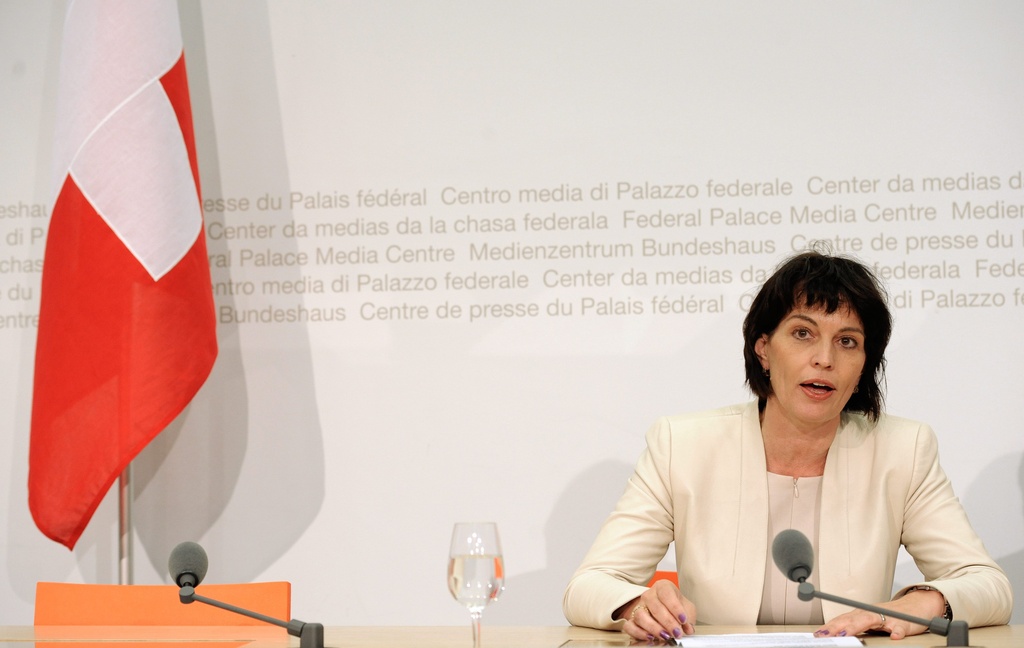
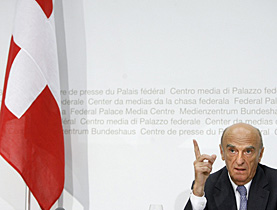
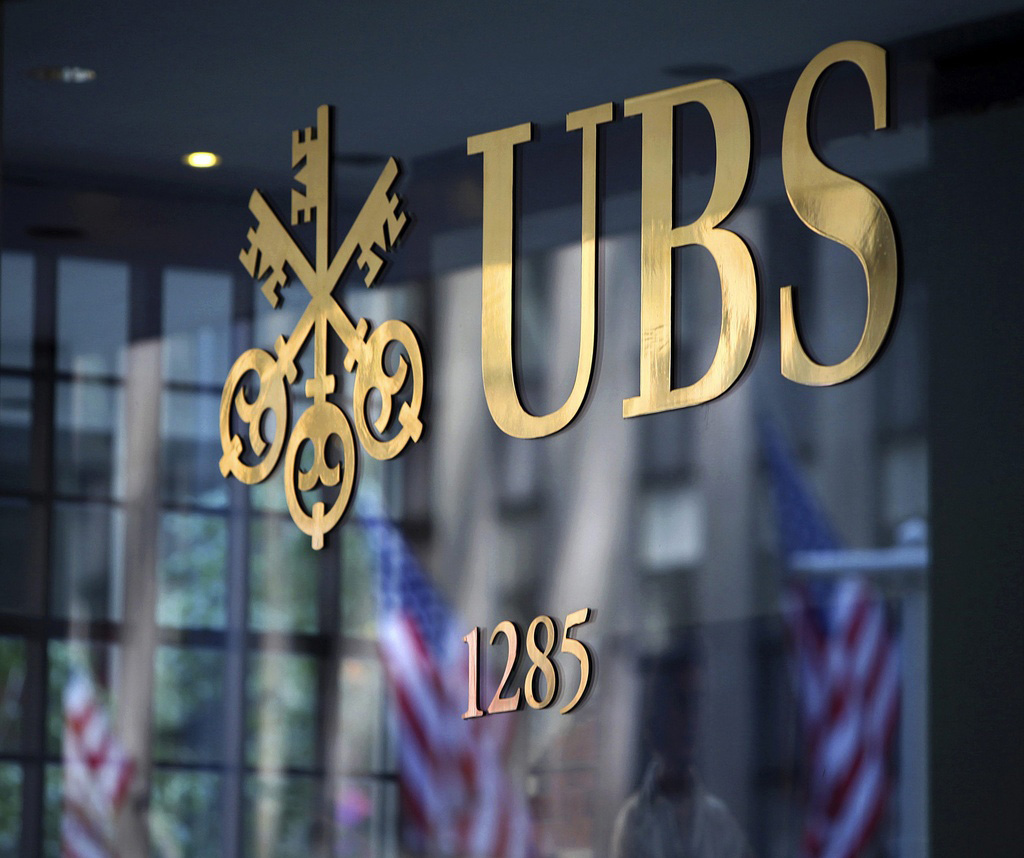
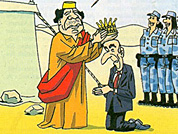
You can find an overview of ongoing debates with our journalists here. Please join us!
If you want to start a conversation about a topic raised in this article or want to report factual errors, email us at english@swissinfo.ch.